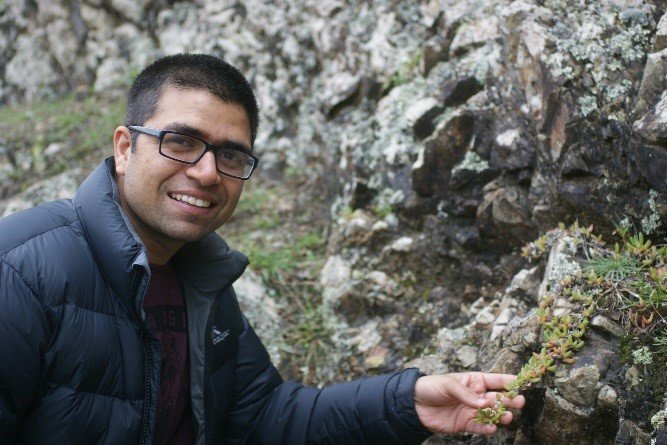
The effects of increasing salt levels in soil can be devastating. Among other consequences, an increase in soil salinity can kill plants and other vegetation, corrode man-made objects like pipes, and make water undrinkable – all of which could endanger many lives. Unfortunately, soil salinity is increasing worldwide in large parts as a result of human activity, with Australia, Africa and India among the worst-affected.
But amid such dire news is hope however – courtesy of a Victoria University of Wellington PhD student who’s just had a paper on the subject published in the journal New Phytologist.
While collecting plant samples near the Red Rocks area of Wellington’s south coast, plant biology PhD student Gagandeep Jain noticed specimens of disphyma austral – a plant native to coastal New Zealand – had different levels of red pigmentation that seemed to vary depending on each plant’s distance away from the shore. Suspecting the red pigments, known as betalains, of the plants were a sign as to the ability of the plants to withstand high levels of salt in the soil, he decided to see if that was indeed the case.
After six months of testing, Jain’s theory would be proven right.
“Red pigments act like a shield,” says Jain. “They protect plant tissues from the damaging free radicals that are formed when plants experience the combination of salt and strong sunlight.”
Jain’s research found that when betalains are transferred to plants with green leaves, the green-leafed plants also became more tolerant to salt in soil. Could such findings mean it might be possible to engineer crops to resist increasing soil salinity?
Victoria University Professor of Plant Biology Professor Kevin Gould thinks so. He says Jain’s research may be able to change the direction of crop modification science.
“There is concerted scientific effort worldwide to genetically engineer crops with improved tolerance to salt,” he says.
Gould adds: “Remediating saline soil is possible, but it’s expensive and temporary. Gagandeep’s work suggests there may be an alternative strategy. If it is possible to introduce genes into a crop plant so that it makes betalain, then traditional crops might once again be harvestable on this land.”
Jain says he hopes to continue his research by investigating whether the enzyme in betalain can be successfully transplanted into other plant species.




